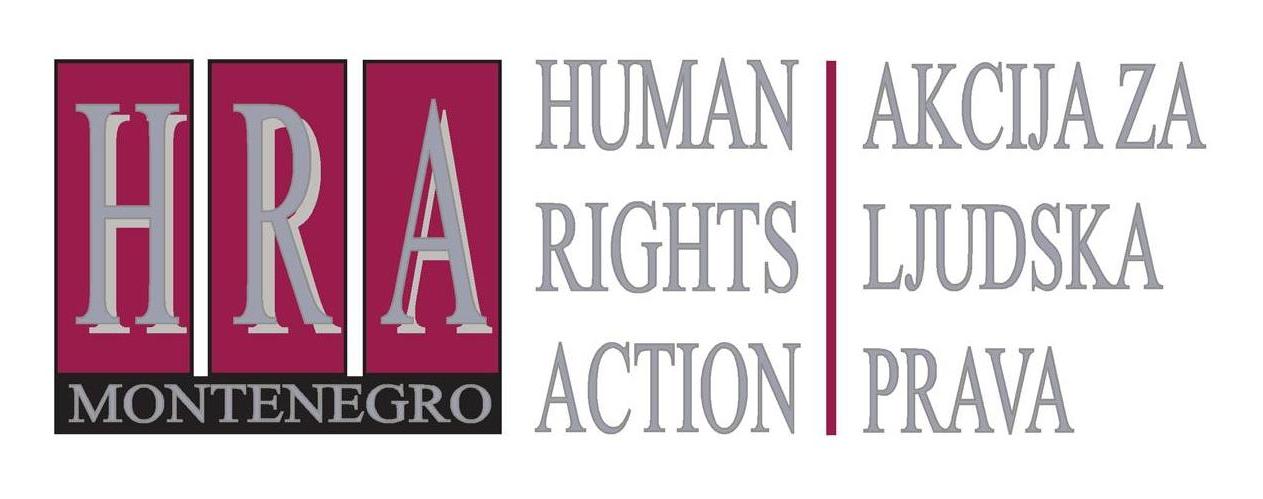30/11/2015 – DEBATE “PUSSY RIOT – A GLOBAL SYMBOL OF REBELLION” HELD IN PODGORICA
30/11/20152/12/2015 – JUDICIAL INSTITUTIONS INACCESSIBLE TO PERSONS WITH DISABILITIES
02/12/20151/12/2015 – THE STATE FAILS TO ADEQUATELY RESPOND TO TORTURE OF PRISONERS FOR OVER 10 MONTHS

 HRA and Juventas expect the Minister of Justice and Supreme State Prosecutor to immediately initiate procedures for establishing responsibility of the Institute for Execution of Criminal Sanctions (IECS) administration and Basic State Prosecutor’s Office for failing to prosecute during the past 10 months acts of torture and inhuman and degrading treatment committed against at least thirteen prisoners who were heavily beaten as determined by the Ombudsman’s Opinion of 24 November 2015. The prisoners were abused following a severe incident in which several inmates had attacked members of the prison police on 14 January of the current year.
HRA and Juventas expect the Minister of Justice and Supreme State Prosecutor to immediately initiate procedures for establishing responsibility of the Institute for Execution of Criminal Sanctions (IECS) administration and Basic State Prosecutor’s Office for failing to prosecute during the past 10 months acts of torture and inhuman and degrading treatment committed against at least thirteen prisoners who were heavily beaten as determined by the Ombudsman’s Opinion of 24 November 2015. The prisoners were abused following a severe incident in which several inmates had attacked members of the prison police on 14 January of the current year.
According to the Ombudsman’s Opinion, a forensic expert established the injuries of prisoners already on 19 January 2015. The findings of the expert are particularly shocking, according to which one of the abused prisoners suffered as many as 46 strikes by blunt force.
The fact that ill-treatment occurred only after the Ombudsman left the prison, as he had been previously invited by IECS administration to confirm that the prisoners had not been mistreated, indicates a planned organized effort towards commission of the crimes of Torture and Ill-treatment. The Ombudsman subsequently established and reported that the prison officers had beaten inmates in a group and in an organized manner.
The State Prosecutor’s Office has so far indicted only one prison officer for beating one prisoner, but not others who were directly involved, i.e. who enabled, supported or concealed intense ill-treatment of prisoners following the incident. The IECS (within the Ministry of Justice) imposed a disciplinary measure against only two prison officers for beating one prisoner.
The Ombudsman informed the public of the outcome of his investigative procedure only after ten months, which is also not sufficiently effective in cases of torture under the European standards. The Opinion of the Ombudsman indicates that neither the Basic State Prosecutor’s Office nor the IECS have cooperated with him in a timely and effective manner during his investigative procedure.
Bearing in mind the slow and ineffective actions of state bodies, one can conclude that Montenegro has not yet established the policies and practice of “zero tolerance for torture”, as previously and explicitly requested of Montenegro by international organizations. Please note that the European Commission has raised this case in its recent report on Montenegro’s progress for 2015 and demanded full investigation.
Within two weeks of the incident, the State Prosecutor’s Office accused nine inmates for assaulting prison officers, and later one of the members of the prison police for beating a prisoner. Since that time to date it has not been announced that any other person was accused in relation to this incident, while the Prosecutor’s Office has in the meantime dismissed charges against five prisoners originally accused of assaulting police officers. During the past ten months our organizations’ researchers have spoken of the incident in the IECS and events that followed with a number of witnesses, and not solely prisoners. We have informed the Supreme State Prosecutor about our knowledge of illegal punishment of prisoners on four occasions, most recently on 29 March 2015.
In the context of the incident, the IECS has imposed disciplinary measures against inmates who had attacked prison officers and against two members of the prison police for ill-treatment of one prisoner. One of those officers is also the only one prosecuted by the Basic State Prosecutor in Podgorica in relation to the disputed events.
In the case of knowledge of ill-treatment in prison, the State Prosecutor’s Office is under an obligation to conduct efficient and effective independent investigation and punish without compromise all those directly involved in such treatment or those who aided or concealed it, regardless of whether the victims of the abuse have filed criminal charges. International bodies have advised Montenegro on several occasions that its top officials should ensure implementation of the policy of “zero tolerance for torture”, however, the opposite is still taking place.
We wish to remind that:
• No one has been punished for the mass beating of prisoners by the special police unit in the IECS on 1 September 2005;
• Ill-treatment of Igor Milić and Dalibor Nikezić in the IECS has not been adequately prosecuted and punished, as determined by the European Court of Human Rights;
• Two prison officers were prosecuted for beating of detainee Vladana Kljajić only after the European Committee for the Prevention of Torture had intervened, when the said officers were imposed the mildest possible, suspended sentence;
• This year prison officers who had beaten Marko Đurković in the Remand Prison in the IECS received only a suspended sentence, and only because Đurković insisted on this procedure, monitored from the start by Human Rights Action.
The Ombudsman has no authority to prosecute anyone, but his detailed opinion in the capacity of the National Preventive Mechanism for the Prevention of Torture that in January this year AECS officers conducted acts of torture and other ill-treatment against thirteen prisoners is of exceptional importance. However, the Opinion of the Ombudsman has arrived much later than expected. The morning after the incident, on 15 January 2015, we addressed the Ombudsman verbally, and then in a letter, appealing to him to return to the prison and once more visit specific prisoners, after the initial visit conducted immediately after the incident. Although the Ombudsman stated that the actions were initiated by that very letter, he replied to it only three and a half months later, on 27 April 2015, stating that he has been investigating the case and that we shall be informed about the outcome of his investigative procedure. We received the notification of the Ombudsman on the outcome of this procedure only on 24 November, more than 10 months after the incident.
NGOs Human Rights Action and Juventas are implementing project “Community Oriented Prisons” with the support of the EU and the British Embassy, which inter alia includes continuous monitoring of human rights in prison, particularly in relation to the prevention of torture and other ill-treatment.
Tea Gorjanc Prelević, Executive Director of NGO Human Rights Action
Ivana Vujović, Executive Director of NGO Juventas







 English
English